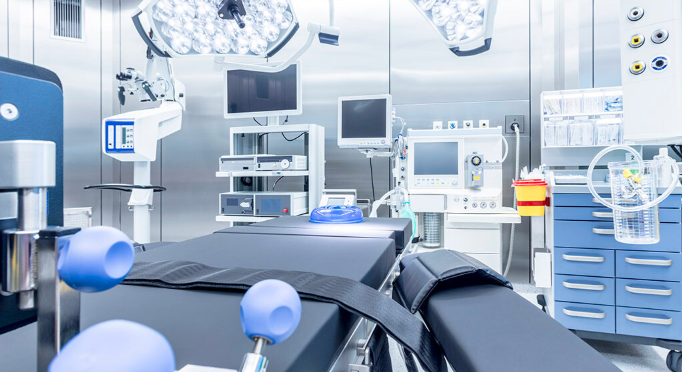Medical Parts Machining Factory

Introduction
Precision and reliability are essential in the healthcare industry. One of the foundational elements behind modern medical equipment and devices is the medical parts machining factory. These specialized facilities produce highly accurate components used in everything from surgical instruments to diagnostic machines. The importance of precision machining in the medical sector cannot be overstated—lives depend on it.
What Is a Medical Parts Machining Factory?
A medical parts machining factory is a dedicated facility that manufactures small to mid-sized components required in medical instruments, implants, diagnostic tools, and surgical systems. Unlike general machining units, these factories are equipped with technologies and practices that comply with the stringent quality and safety standards of the medical industry.
The parts they manufacture are critical to the functionality, reliability, and safety of life-saving devices used in hospitals and laboratories worldwide.
Applications in the Medical Field
Medical machining factories produce parts for a wide variety of applications, including:
- Orthopedic implants like bone screws and plates
- Dental prosthetics and abutments
- Cardiovascular stents and pacemaker housings
- Surgical tool handles, blades, and actuators
- Diagnostic components for CT, MRI, and ultrasound machines
- Robotic surgical equipment parts
Each of these applications requires different materials, tolerances, and surface finishes, which the machining factory must handle with complete precision.
High-Precision Manufacturing
Unlike automotive or aerospace industries where durability and strength are the main focus, the medical industry demands miniaturization, bio-compatibility, and extremely tight tolerances. Parts must fit perfectly and operate flawlessly within the human body or sensitive medical systems.
To achieve this, medical machining factories utilize:
- CNC machining for exact, repeatable results
- Swiss-type lathes for micro-machining
- Multi-axis milling machines for complex geometries
- Electrical Discharge Machining (EDM) for precision cuts on hard materials
These tools allow the production of tiny, intricate parts that meet medical-grade standards.
See also: Payroll Outsourcing Singapore: A Smart Solution for Businesses
Material Considerations
The materials must be biocompatible, corrosion-resistant, and able to withstand sterilization processes. Some of the most common materials include:
- Titanium – Lightweight, strong, and bio-friendly
- Stainless steel – Used in surgical tools due to its durability and anti-corrosion properties
- PEEK (Polyether ether ketone) – A high-performance plastic used in implants and insulative components
Machining such materials requires not only specialized cutting tools but also advanced knowledge of feed rates, cooling, and finishing techniques.
Factory Workflow
A medical parts machining factory follows a well-regulated and traceable production process:
- Design & Review: Engineers evaluate 3D CAD files for manufacturability and compliance.
- Tool Path Programming: CAM software programs the machines for precise tool movement.
- Material Preparation: Certified raw materials are selected and documented.
- Machining: CNC and other machines produce the part according to the specifications.
- Inspection: Each part undergoes dimensional verification, surface analysis, and tolerance checks.
Quality Assurance Standards
Medical machining factories must adhere to some of the strictest quality control measures in manufacturing. Key standards include:
- FDA regulations (21 CFR Part 820) – For companies supplying parts to the US market
- CE marking – For compliance with European health and safety standards
Quality checks involve advanced instruments like Coordinate Measuring Machines (CMM), optical comparators, and profilometers.
Cleanroom Machining and Packaging
For some components, particularly those intended for direct contact with the human body or internal implants, machining and packaging may occur in cleanroom environments. These areas are regulated for:
- Temperature and humidity control
- Particle filtration
- Bacterial contamination control
Cleanroom machining ensures that the final products are ready for sterilization and meet aseptic processing standards.
Technology Integration
Many medical machining factories are embracing Industry 4.0 standards to improve efficiency and traceability.
- IoT-enabled machines for real-time monitoring
- Digital twins for design simulation
- AI-assisted quality control for faster defect detection
- Blockchain for tamper-proof traceability
Such advancements help maintain high productivity while ensuring safety and compliance.
Challenges in Medical Machining
The field of medical machining is not without its challenges:
- Complex geometries require multi-axis machining and extensive operator training
- Regulatory hurdles often slow down new production runs
- High scrap rates due to strict tolerance limits
- Documentation burdens due to traceability demands
- Evolving device designs that push the limits of current machining capabilities
Overcoming these challenges requires continuous investment in technology, training, and compliance infrastructure.
Why Choose a Specialized Factory?
Medical companies must choose their machining partner wisely. A general-purpose machine shop may not be suitable for healthcare components. Specialized medical parts machining factories offer several advantages:
- Experience in working with biocompatible materials
- Advanced multi-axis and micro-machining tools
- Cleanroom capabilities for sterile processing
- In-house quality control and documentation systems
- Knowledge of global compliance standards
The Global Landscape
Countries such as the United States, Germany, Switzerland, and Japan lead in high-precision medical machining. However, Asian countries, particularly China and India, are rapidly becoming competitive due to lower costs, improved technology, and global certification efforts.
The demand for outsourced machining is rising as more medical device companies seek flexible manufacturing partners for rapid prototyping and scalable production.
Conclusion
The Medical Parts Machining factory is a crucial part of the modern healthcare ecosystem. From the tiniest implant to advanced robotic surgery components, these factories ensure the highest standards of quality, precision, and safety. As technology and medicine evolve hand in hand, the role of machining in delivering effective, life-saving solutions will only become more significant.
By maintaining strict compliance, embracing advanced tools, and continuously innovating, medical machining factories support not just the devices of today—but the healthcare miracles of tomorrow.



